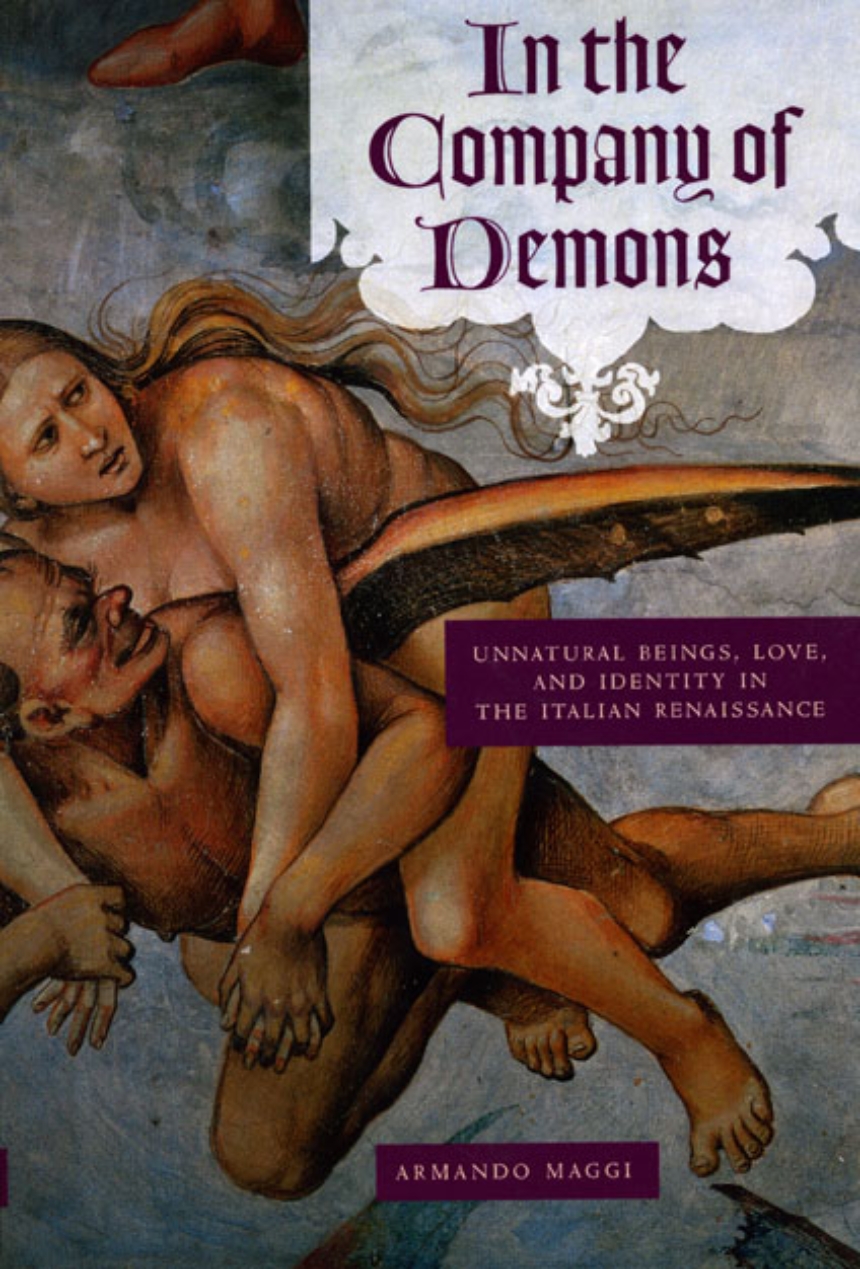In the Company of Demons
Unnatural Beings, Love, and Identity in the Italian Renaissance
9780226501314
9780226501307
9780226501291
In the Company of Demons
Unnatural Beings, Love, and Identity in the Italian Renaissance
Who are the familiar spirits of classical culture and what is their relationship to Christian demons? In its interpretation of Latin and Greek culture, Christianity contends that Satan is behind all classical deities, semi-gods, and spiritual creatures, including the gods of the household, the lares and penates.But with In the Company of Demons, the world’s leading demonologist Armando Maggi argues that the great thinkers of the Italian Renaissance had a more nuanced and perhaps less sinister interpretation of these creatures or spiritual bodies.
Maggi leads us straight to the heart of what Italian Renaissance culture thought familiar spirits were. Through close readings of Giovan Francesco Pico della Mirandola, Strozzi Cigogna, Pompeo della Barba, Ludovico Sinistrari, and others, we find that these spirits or demons speak through their sudden and striking appearances—their very bodies seen as metaphors to be interpreted. The form of the body, Maggi explains, relies on the spirits’ knowledge of their human interlocutors’ pasts. But their core trait is compassion, and sometimes their odd, eerie arrivals are seen as harbingers or warnings to protect us. It comes as no surprise then that when spiritual beings distort the natural world to communicate, it is vital that we begin to listen.
Maggi leads us straight to the heart of what Italian Renaissance culture thought familiar spirits were. Through close readings of Giovan Francesco Pico della Mirandola, Strozzi Cigogna, Pompeo della Barba, Ludovico Sinistrari, and others, we find that these spirits or demons speak through their sudden and striking appearances—their very bodies seen as metaphors to be interpreted. The form of the body, Maggi explains, relies on the spirits’ knowledge of their human interlocutors’ pasts. But their core trait is compassion, and sometimes their odd, eerie arrivals are seen as harbingers or warnings to protect us. It comes as no surprise then that when spiritual beings distort the natural world to communicate, it is vital that we begin to listen.
Reviews
Table of Contents
Preface: Bodies of Metaphors
Introduction: Bodies of Desire
1. To Read the Body of a Monster
Exegesis and Witchcraft in Strix by Giovan Francesco Pico della Mirandola
2. To Recall the Spirits’ Past
Memory and Demonology in Strozzi Cigogna’s Palace of Marvels and of the Great Enchantments of the Spirits and of the Entire Nature
3. "The Shadows and Their Beloved Bodies"
Introduction: Bodies of Desire
1. To Read the Body of a Monster
Exegesis and Witchcraft in Strix by Giovan Francesco Pico della Mirandola
2. To Recall the Spirits’ Past
Memory and Demonology in Strozzi Cigogna’s Palace of Marvels and of the Great Enchantments of the Spirits and of the Entire Nature
3. "The Shadows and Their Beloved Bodies"
Medicine, Philosophy of Love, and Demonology in Pompeo della Barba’s Interpretation of a Platonic Sonnet
4. What Does Human Mean?
Beings against Nature in Ludovico Maria Sinistrari’s Demoniality
4. What Does Human Mean?
Beings against Nature in Ludovico Maria Sinistrari’s Demoniality
A Conclusion: Bodies of Salvation
Notes
Bibliography
Index
Notes
Bibliography
Index
